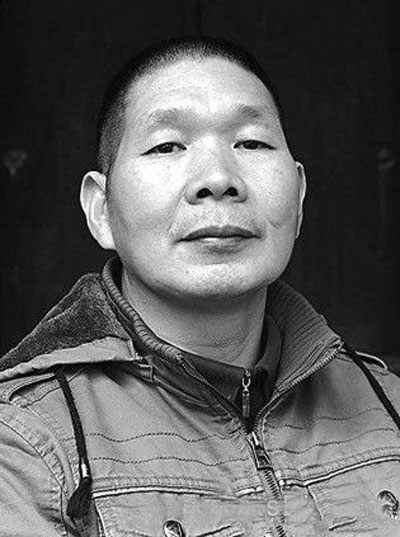 SINCE its inception in 1970, the Poetry International Rotterdam has grown into one of the world’s major poetry festivals. This year, a Shenzhen migrant worker was invited to give a keynote speech at this world-renowned event to share his experiences and thoughts from the past 20 years. Guo Jinniu, born in Hebei Province, has worked in Shenzhen as an assembly line worker for more than 20 years. While working at factories such as Foxconn, he poured his thoughts and emotions into poems. Over the past 20 years, he has published poems and stories all around China, many of which have been translated into English, German, Dutch and Czech. His collection “Going Home on Paper” won the first ArtsBJ.com International Chinese Poetry Prize and a Jindi Poetry Competition Prize. Guo’s poetry grows out of his 20 years as a migrant worker. He gives a voice to the disposed, the forgotten and the marginalized, whose unacknowledged labor underpins China’s rising economy, according to the festival. “It is exciting to be invited. On this trip, I brought two Guos — one is the Guo who works at a factory and a construction site, the other is the Guo who writes poems at a factory and a construction site,” Guo said before setting off to Rotterdam. For Guo, writing poems is a mysterious but painful task. “Poetry makes me two different persons, but it is also poetry that makes me one,” he said. In Guo’s eyes, reality and money have always tempted him to the material world. “But poems help open my sight and builds a dreamland for me to wander around,” he said. Therefore, he does not need to “write” or “create.” “It is just my way of speaking.” In Shenzhen, there are millions of migrant workers like Guo. “We go to work in Shenzhen every year, leaving our empty villages behind us. At the end of every year, we go back home to celebrate the festivals, leaving an empty city behind us. For the past 20 years, this journey between ‘empty village’ and ‘empty city’ has been my inspiration,” he said. Guo did not plan on sharing his own writing experiences during the speech. “I have a long list of names that I wish to share with the attendees at the festival, other Shenzhen poets such as Wang Xiaoni, Lu Guiping, Xu Jingya, Liu Hong and Xie Xiangnan as well as Li Zuofu, Wu Xia and Zhang Hua — who are still struggling in the grass-root class,” he said. “There are lots of poets like me in Shenzhen. They did not come [to the festival] because they are not known to the world. Therefore, I brought their works, hoping to let their voices be heard by the world.” The Poetry International Rotterdam was held from June 9 to 13 this year. (Wang Yuanyuan) | 
